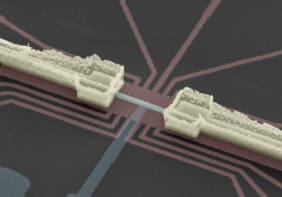
Quantum-technology initiatives in Russia, China and the UK are the subjects of three different articles in the journal Quantum Science and Technology, which has put together a special Focus on Quantum Science and Technology Initiatives Around the World.
The UK report is by Peter Knight and Ian Walmsley of Imperial College London and describes how more the £1bn in government and industry funding has been committed to developing quantum technologies in the period 2014-2024. The UK’s National Quantum Technology Programme and its research and skills hubs at universities throughout the country are also described.
Russia’s efforts to develop quantum technologies are described in a report by 14 physicists at the Russian Quantum Center in Moscow and several other institutes. The authors point out that the country is in the process of adopting a five-year Russian Quantum Technologies Roadmap as part of the nation’s Digital Economy National Program. The final budget for the quantum technologies portion of this initiative is expected to be about €1bn.
Quantum-computing initiatives worldwide are examined by leading physicists
A report written by five physicists at the University of Science and Technology of China including Jian-Wei Pan points out that China has spent nearly $1bn on quantum-technology research and development over the past decade. This includes the launch of the Micius quantum-communications satellite, which was launched in 2016.
The three reports follow on from reviews on the states of quantum technologies in Canada, the EU, Japan, the US and Australia – which were published earlier this year.




